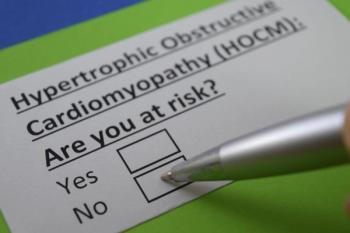
Empagliflozin Reduces Risk of CV Death, Hospitalization for Heart Failure With Preserved Ejection Fraction
The EMPEROR-Preserved study investigated empagliflozin (Jardiance; Eli Lilly) for the treatment of heart failure with preserved ejection fraction.
A recent clinical trial is the first to show that empagliflozin (Jardiance; Eli Lilly and Company) can significantly reduce the risk of the composite of cardiovascular (CV) death or hospitalization for heart failure (HF) in patients with a certain type of chronic HF, with or without diabetes.
HF is an increasingly prevalent disease in Western countries and is among the leading causes of hospitalizations globally. The Boehringer Ingelheim-sponsored clinical trial investigated patients with HF with preserved ejection fraction (HFpEF). This subset of HF is the result of a malfunctioning left ventricle, in which the volume of blood entering the heart is less than normal.
There are currently no FDA-approved therapies shown to improve outcomes for individuals with HFpEF, “leaving a significant unmet medical need in this already prevalent and increasingly common form of heart failure,” said Mohamed Eid, MD, MPH, MHA, vice president, Clinical Development & Medical Affairs, Cardio-Metabolism & Respiratory Medicine, Boehringer Ingelheim Pharmaceuticals.
The EMPEROR-Preserved clinical trial is 1 of 2 EMPEROR (EMPagliflozin outcomE tRial in patients with chrOnic heaRt failure) phase 3, randomized, double-blind trials researching the safety and efficacy of empagliflozin in adults with HF with either preserved or reduced ejection fraction, both with and without diabetes, who are receiving current standard of care. The Preserved study took place between March 2017 and April 2021 across 619 trial sites in the United States and 22 other countries and included 5988 adults with HFpEF randomized to receive once-daily empagliflozin 10 mg or placebo. Exclusion criteria included myocardial infarction, major cardiovascular surgery, stroke, or transient ischemic attack (TIA) in the past 90 days.
Investigators reported that the study met the primary end point of reducing the risk for the composite of CV death or hospitalization for HF in adults with HFpEF. Other outcome measures included the occurrence of adjudicated hospitalization for heart failure, estimated glomerular filtration rate (eGFR), and time to first occurrence of chronic dialysis or renal transplant sustained reduction of eGFR, among others. The full results of EMPEROR-Preserved will be presented at the European Society of Cardiology (ESC) Congress 2021 on August 27.
"We look forward to presenting the EMPEROR-Preserved results at ESC 2021, which should offer a significant breakthrough in cardiovascular medicine and a new hope for people with HFpEF, which is an increasingly prevalent public health issue,” said professor Stefan Anker, heart failure cardiologist at Charité Berlin, Germany, and EMPEROR-Preserved principal investigator.
"Building on previous results from the EMPA-REG OUTCOME trial, and the EMPEROR-Reduced trial in heart failure with reduced ejection fraction, the EMPEROR-Preserved findings demonstrate that empagliflozin reduces cardiovascular death or hospitalization for heart failure and has the potential to transform the care of people living with heart failure."
Reference
- Breakthrough results for Jardiance® (empagliflozin) confirm EMPEROR-Preserved as first and only successful trial for heart failure with preserved ejection fraction. News Release. Lilly; July 6, 2021. Accessed July 7, 2021.
https://investor.lilly.com/news-releases/news-release-details/breakthrough-results-jardiancer-empagliflozin-confirm-emperor .
Newsletter
Pharmacy practice is always changing. Stay ahead of the curve with the Drug Topics newsletter and get the latest drug information, industry trends, and patient care tips.























